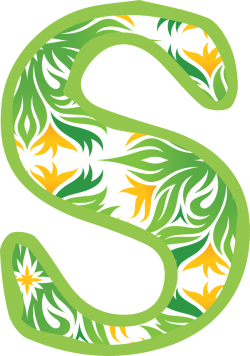Arlene Miller's Blog, page 25
March 26, 2021
Confused Words: W and Y and It’s a Wrap!
 Image by Gerd Altmann from Pixabay
Image by Gerd Altmann from PixabayFinally, we reach the end of the alphabet on the series about confusing word pairs and groups. Last week I received a lot of returns on the emails I sent out. If you didn’t receive last week’s quiz post, I apologize — and you can always find the blog posts on my website under the BLOG tab. (www.bigwords101.com OR www.TheGrammarDiva.com.) I am moving to a new e-mail sending service, but first I have to figure out the technical details….and that generally stops me in my tracks: technophobia! So bear with me….
Confusing words that begin with W and Y:
Waive/Wave – To waive is to refrain from insisting on something or to forego. Wave is the movement of the tides or a hand gesture. Because she had such good grades, the school waived the requirement that students running for office be at the school for at least a year. He waved at us before he rode the big wave on his surfboard.
Warrantee/Warranty – I used to have a tough time with this one. A warrantee is the person who receives a warranty. A warranty is an agreement you get with a purchase that guarantees your product will work for a specific length of time, or the product will be repaired or replaced free of charge. The contract claimed that the warrantee had to register the product with the company in order to use the warranty.
Wary/Weary – Wary means watchful or on guard. Weary means tired. The dog was wary of strangers. After that covid vaccine, I was very weary for a couple of days.
Way/Ways – Ways is the plural of way. Don’t use it as a singular. Which way is your house? (Yes) There are many ways to bake brownies. (Yes) We still have a ways to go. (No. That last sentence is not correct.)
Wet/Whet – Wet is the opposite of dry. To whet, a verb, is to make eager for something or to stimulate. My nail polish is still wet. These fancy appetizers will whet your appetite for the main course.
Whoever/Who ever – Whoever is some person. Occasionally who and ever are two separate words. If you can put a word or phrase between them, they are two separate words. Whoever is first at the party will win a prize. Who ever says those things? (You could say Who on earth ever says those things? OR Who, might I ask, ever eats that?)
Whose/Who’s – We probably have had this one drummed into us enough times to know it by now. Whose is possessive. Who’s is a contraction for who is. These words follow the rule that all contractions have an apostrophe, but no possessive pronouns do (his, hers, ours, yours, theirs, whose). Whose old shoe is this? Who’s coming with me.
Wont/Won’t – Wont isn’t used very often, but it means accustomed. And of course won’t is the contraction for will not. He is wont to take a hike every weekend. He won’t be able to visit because he is hiking.
Yoke/Yolk – A yoke is something that binds things together, particularly two draft animals. And yolks belong in eggs (the yellow part). Please tighten the yoke on those two donkeys. The yoke broke while I was frying the egg.
Your/You’re – I know, I know. But it still is a very common mistake, and probably much of the time, just a typo. Your is possessive. You’re is a contraction. Just like whose and who’s. They follow the rules. Please don’t forget to take your coat. You’re going to freeze without it.
Stay tuned for the quiz next week.
March 19, 2021
Next to the Last Quiz (Yay!)
 Image by mohamed Hassan from Pixabay
Image by mohamed Hassan from PixabayHere is the quiz on confusing T, U, and V words….
1. I heard (that, where) you got a promotion yesterday.
2. One of the ( tenants, tenets ) that has remained throughout my life is that I am always honest.
3. I (use to, used to) be afraid of spiders, but I guess I outgrew it!
4. When I saw her, she was headed (toward, towards) the mall.
5. When I saw them, they were in the (throes, throws) of a big argument.
6. I will (try and, try to) move the piano myself, but I think I will need some help.
7. That dog is really (vicious, viscous), so watch out.
8. (This, These) kind of apples are my favorite.
9. I think my dog is larger (than, then) your dog.
10. He broke a (venial, venal) traffic law, so he didn’t have a very large fine.
SCROLL DOWN FOR THE ANSWERS…
KEEP SCROLLING…
ALMOST…
VERY CLOSE…
ANSWERS
1. I heard (that, where) you got a promotion yesterday.
2. One of the ( tenants, tenets ) that has remained throughout my life is that I am always honest.
3. I (use to, used to) be afraid of spiders, but I guess I outgrew it!
4. When I saw her, she was headed (toward, towards) the mall. (Either one, but toward is more common in American English.)
5. When I saw them, they were in the (throes. throws) of a big argument.
6. I will (try and, try to) move the piano myself, but I think I will need some help.
7. That dog is really (vicious, viscous), so watch out.
8. (This, These) kind of apples are my favorite.
9. I think my dog is larger (than, then) your dog.
10. He broke a (venial, venal) traffic law, so he didn’t have a very large fine.
March 13, 2021
TUV of Confused Words
 There, Their, They’re….Today we look at confused word pairs that begin with T, U, and V, not including that trio. I know you know those.
There, Their, They’re….Today we look at confused word pairs that begin with T, U, and V, not including that trio. I know you know those.
And of course I did not need to include to, too, and two either!
Hope you are all getting your vaccines!
March 5, 2021
National Grammar Day Loves and Fears
 Image by Manuel do Moucheiro from Pixabay
Image by Manuel do Moucheiro from PixabayMarch 4 was National Grammar Day…really!!! But of course we can celebrate for the whole week, so let’s.
What do we call a person who loves grammar? Well, we can stretch the language a little and call that person a grammarphile, the suffix -phile meaning a lover of something. Related loves include linguaphile, someone who loves language and words, or logophile, a lover of words.
But what about someone who fears grammar? Is there a word for that? Of course. There is a word for most fears, even the most rare and weird. Some of these words you will find in the dictionary. Others are in more colloquial dictionaries or not in the dictionary at all.
Atelophobia – The fear of grammar. Maybe “fear” is going a little too far; grammar anxiety might be more fitting.
Here are a few more related fears:
Ortographobia – The fear of misspelling words. (Ortography is the correct spelling of words.)
Dysgrammatophobia – The fear of producing bad grammar.
Virguphobia – Fear of commas. (I wouldn’t lie to you.)
Pistaphobia – Fear of periods. Sometimes used to represent the fear of all punctuation.
Erotimatikophobia – Nope. Nothing to do with erotica. It is the fear of question marks.
 Image by Alexandra
Image by Alexandra  A life without animals is not worth living
A life without animals is not worth living from Pixabay
from PixabayHere are several more fears related to grammar and writing:
Allodoxaphobia- Fear of opinions.
Bibliophobia- Fear of books. (Bibliophile is a lover of books.)
Epistemophobia- Fear of knowledge.
Graphophobia- Fear of writing or handwriting.
Hippopotomonstrosesquipedaliophobia- Fear of long words. (I kid you not.)
Logophobia- Fear of words.
Metrophobia- Fear or hatred of poetry.
Onomatophobia- Fear of hearing a certain word or of names.
Scolionophobia- Fear of school.
Sophophobia- Fear of learning.
Symbolophobia- Fear of symbolism.
Verbophobia- Fear of words. (Ands not just verbs)
National Grammar Day, March 4, was established in 2008 by Martha Brockenbrough, She is the founder of the Society for the Promotion of Good Grammar (SPOGG). She established the day to excite her students about grammar. President Bush sent a letter comemmorating the day. And yes, there is a National Punctuation Day, which is celebrated on September 24.
Asking for Help: I would love to do another Grammar and Punctuation Pet Peeves post. Please send your pet peeve(s) to me in an e-mail to bigwords101@yahoo.com. PLEASE do not send them as a comment to this post. They will not be printed as a comment. Thank you!!
February 26, 2021
The SSS TESSSST
 Image by M. Maggs from Pixabay
Image by M. Maggs from PixabayOkay: Here is the quiz on the confusing S words (and yes, there will be a break from the confusing words series again next week!):
Just (set, sit) the baby on the floor.I just (shined, shone) my shoes yesterday, but they are already scuffed up. The (soles, souls) of my feet are dirty from walking barefoot in my house!Please be (sure and, sure to) lock the door on your way out.Although she is tiny in (statue, stature), she is very strong.(Sometime, Some time, Sometimes) maybe you can find time to come fix my dripping faucet.I just bought some beautiful floral (stationary, stationery), but I don’t write letters anymore.I thought you were (suppose to, supposed to) add the sugar before the eggs.I need to let the pie (set, sit) in the refrigerator for 12 hours.They (shall, will) go whether they like it or not.Do you have (some time, sometime) available this week to look at my leaky faucet?We decided not to print that newspaper article because we thought it might be (libel, slander).They say you reap what you (sew, so, sow).The cows were so (stationary, stationery) I thought they were fake!Scroll down for the answers:Keep scrolling
Keep scrolling
Keep scrolling
Here we go…Just ( set , sit) the baby on the floor. (I would be inclined to say sit because the object of set is a human. However, sit does not take an object, so I would assume set is correct. I was unable to find a definitive answer online, but if you would like to try . . .)I just ( shined, shone) my shoes yesterday, but they are already scuffed up. (Both acceptable past tenses of shine, but shined is generally used as a transitive with an object, whereas shone is used to mean “gave off light” without an object.)The ( soles , souls) of my feet are dirty from walking barefoot in my house!Please be (sure and, sure to ) lock the door on your way out.Although she is tiny in (statue, stature ), she is very strong. (Sometime, Some time, Sometimes) maybe you can find a free day to come fix my dripping faucet.I just bought some beautiful floral (stationary, stationery) , but I don’t write letters anymore.I thought you were (suppose to, supposed to ) add the sugar before the eggs.I need to let the pie ( set, sit) in the refrigerator for 12 hours. (Hmmm….well, it could be either, I guess, but set has a slightly different meaning in this sentence. Set is used to mean “harden.” However, it is sitting in the refrigerator to set!They (shall, will ) go whether they like it or not. (Yes, you could also use shall. Shall is used in the third person for emphasis.)Do you have (some time, sometime) available this week to look at my leaky faucet?We decided not to print that newspaper article because we thought it might be (libel, slander). (Oh, I just threw that one in. Libel refers to print; slander is spoken.)They say you reap what you (sew, so, sow ).The cows were so ( stationary , stationery) I thought they were fake!
February 19, 2021
Seemingly Similar “S” Words
 Image by Stefania Grieco from Pixabay
Image by Stefania Grieco from PixabayAs we near the series on confusing words, we come to S.. .
Say/Tell – Both involve moving the lips or hands, but they are different; and you probably use them correctly without even realizing it. To say is to speak something, and it sometimes has a direct object, but not an indirect object. Tell usually involves relating something to someone else. It usually has a direct object and often an indirect object as well. Say it out loud. (Direct object it). She says it is going to rain tomorrow. Tell me a story. (Direct object story; indirect object me.) You just wouldn’t say Tell it out loud or Say me a story.Set/Sit – This pair is like lay and lie. One of the pair takes a direct object and the other doesn’t. Set is used with an object. Sit isn’t. Sit on the chair. Set your book on the chair. Shall/Will – This distinction is pretty much gone from our language except in legal writing, where they are different. Shall, in legal terms, has a special implication of obligation. In formal writing, shall is used with the first-person pronouns only — if you want to get that formal. I shall be back soon. We shall be back soon. You will be back soon. They will be back soon. And so on. Shined/Shone – Both of these words are acceptable past tense forms of shine. If you are going to make a distinction, it is this: Shined is more often used with a direct object and shone without: I shined my shoes before my interview. The sun shone this morning, but now it is raining. Sole/Soul – Soul is the spiritual essence of a person. All other soles are spelled like this: I had fillet of sole for dinner. The sole of my foot hurts. She is the sole hiker daring enough to climb the mountain.Sometime/Sometimes/ Some Time – Sometime means at some future time. Sometimes means some of the time. Some time means an amount of time. You should come to California to visit sometime. Sometimes I think I would love to visit California. Do you have some time to visit me this summer?Stationary/Stationery – Teachers have a few tricks to help their students learn the difference between these two: Stationary with the A refers to place, (but place also has an E). Stationery is paper, which also has both A and E. Go figure. I use my stationary bike every day. Stationery has pretty much gone out of style with e-mail.Statue/Stature/Statute – A statue is the three-dimensional piece of art in the park. Stature is something or someone’s height or an achievement gained. Statute is a permanent rule or enactment passed by a legislative body. The Confederate statue has been removed. Although small in stature, she was a powerful woman. The statute says that there will no alcohol on the premises.Suppose to/Supposed to – Easy. The correct phrase is supposed to. I am supposed to be at my appointment in an hour.Sure and/Sure to – Another easy one. Sure to is the correct phrase: Be sure to clean your room (NOT Be sure and clean your room. It is like try to versus try and.)
February 12, 2021
A Quiz for Valentine’s Day??
 Oops! I guess I was supposed to prepare a Valentine’s Day post this week, but all I have for you is the quiz on R words. But you might like to look at some of the Valentine’s Day posts of years past: A Celebration of Love What Is Love What’s Love Got to Do with It. And there are more.
Oops! I guess I was supposed to prepare a Valentine’s Day post this week, but all I have for you is the quiz on R words. But you might like to look at some of the Valentine’s Day posts of years past: A Celebration of Love What Is Love What’s Love Got to Do with It. And there are more.
And now the quiz on confusing R words: (Because I know you LOVE quizzes!)
I think this dress looks (real, really) pretty on me, don’t you?It’s too bad they are going to (raise, raze) that building right down to the ground.I follow a very strict eating (regimen, regiment) to keep my weight down.The new dues are $10 every month (retroactive from, retroactive to) January.It is (regretful, regrettable) that I cannot come to your wedding.The reason I cannot come is (because of Covid, that I am afraid of Covid). I (respectfully, respectively) decline your invitation.I (riffled, rifled) through the papers quickly, but I could not find your essay.Your wedding is a (right, rite) of passage that I regret missing.I asked John what (role, roll) he had in the robbery.I hope she is (regretful, regrettable) that she treated her friends that way.We usually treat religious leaders with great (reference, reverence). The (regimen. regiment) lined up on the field, ready for marching.He (rapt, rapped) on the door for ten minutes before anyone answered. Dress warm because it is (real, really) cold out today.The (principal, principle) rule of the game is to find more words than your partnerScroll down for the answers….
Keep scrolling….
Keep scrolling….
Tada!I think this dress looks (real, really) pretty on me, don’t you?It’s too bad they are going to (raise, raze) that building right down to the ground.I follow a very strict eating (regimen, regiment) to keep my weight down.The new dues are $10 every month (retroactive from, retroactive to) January.It is (regretful, regrettable) that I cannot come to your wedding.The reason I cannot come is (because of Covid, that I am afraid of Covid). I (respectfully, respectively) decline your invitation.I (riffled, rifled) through the papers quickly, but I could not find your essay.Your wedding is a (right, rite) of passage that I regret missing.I asked John what (role, roll) he had in the robbery.I hope she is (regretful, regrettable) that she treated her friends that way.We usually treat religious leaders with great (reference, reverence). The (regimen. regiment) lined up on the field, ready for marching.He (rapt, rapped) on the door for ten minutes before anyone answered. Dress warm because it is (real, really) cold out today.The (principal, principle) rule of the game is to find more words than your partner
February 5, 2021
RRRR…Confusing R Words
 We are now back to our confusing words series and on the letter R. Some of these are pretty easy, but others might still be problematic.
We are now back to our confusing words series and on the letter R. Some of these are pretty easy, but others might still be problematic.
1. rain/reign/rein – Easy ones. Rain is wet. Reign is royal. Rein is leather. It is supposed to rain today. The king has reigned for 40 years. Hold on tight to the reins, so you don’t fall off the horse.
2. raise/raze/rise – To raise is to make something higher. To raze is somewhat the opposite, meaning to tear down or demolish. Rise and raise are related. Raise takes a direct object, but rise doesn’t. You must raise something (kind of like lay and lie). I raise my hand. They will raze the old school house to make room for office buildings. The sun rises in the East.
3. rapped/rapt/wrapped – They all sound the same, all spelled quite differently and with different meanings. Rapped, the past tense of rap, means to strike quickly as on a door. Rap is also a music style, and rapped is to have sung it. Rapt is an adjective, meaning fully engrossed in something. Wrapped is the past tense of wrap, as in gifts. She rapped loudly on the door before anyone answered. The kids were rapt during the entire horror movie. I wrapped the birthday gift in newspaper, since I haven’t been out to buy wrapping paper in a year.
4. real/really – This one does get confused. Real is an adjective; therefore it is generally used to describe nouns. Really is an adverb, generally used to modify verbs (or adjectives or other adverbs). Is this a real diamond? I did really well on the test. I really cannot ride a bike.
5. reality/realty – This mistake would probably just be a typo. Reality is what is real. Realty is property. He has no grasp on reality. She sells realty in Florida.
6. reason is because/reason is that – Do not use the construction “reason is because.” The reason I am late is because I was stuck in traffic (no). The reason I am late is that I was stuck in traffic (yes). If you really want to use because you can say it this way: I am late because I was stuck in traffic.
7. reference/reverence – Reference is a noun or verb meaning a mention or to mention something. Reverence is a noun meaning great respect. I will reference some historical events in my speech. He treats his wife with great reverence.
8. regimen/regiment – A regimen is a routine that someone follows. A regiment is a group of ground forces in the military. I follow a beauty regimen that takes a lot of my time. The regiment marched down the road in the military parade.
9. regretful/regrettable – Regretful is, as the word implies, full of regret. Regrettable means to be regretted. Circumstances are referred to as regrettable. I am regretful that I wasn’t kinder to my sister. It is regrettable that my sister and I didn’t get along better.
10. respectfully/respectively – Respectfully means full of respect. Respectively means “in the order given.” She sat respectfully and listened to the sermon. I have English, math, and Spanish, respectively, today. (English, then math, then Spanish)
11.retroactive from/retroactive to – Do not use retroactive from. Retroactive to means extending back to some time in the past when certain conditions existed. The pay raise will be given in June, but it will be retroactive to January.
12. riffle/rifle – Riffle is a verb meaning to turn hastily. Rifle is a noun and we all know what it is. She riffled through her English book without paying much attention to what was written. The rifle was not loaded.
13. rite/right/write – Another easy one. A rite is a formal ceremony or customary activity. Right isn’t wrong. And write requires a pen, pencil, crayon, etc. A bar mitzvah is a rite of passage. She always thinks she is right when she writes or says anything.
14. role/roll – Role is a noun that usually refers to a part in a play or movie, or just a part someone plays. Roll is a verb meaning to turn over or a noun meaning something to eat. She plays the role of Annie in the play. My dog just learned to roll over. I had two rolls for breakfast.
January 28, 2021
Dysphemism: When a Euphemism Just Won’t Do
 Image by Gerd Altmann from Pixabay
Image by Gerd Altmann from PixabayLast week, guest blogger Jags Arthurson wrote a wonderful piece about euphemisms. Then, a reader asked me about dysphemisms, which frankly I had not heard of. Obviously, they are the opposite of euphemisms.
Eu comes from the Greek and means good, thus euphemism is a good word or phase for something: eulogy, euphoria, utopia (with the “e” missing).
Dys, on the other hand, means ill or bad: dystopia, dyspepsia, dysfunction. Dis is similar, meaning opposite or unlike: dishonest, dishonorable, dislike, etc.
So dysphemism is a derogatory or unpleasant term used for something or someone, rather than a neutral or pleasant term. The term is sometimes unpleasant to only the giver or other times only the receiver.
We can think of many dysphemisms:
Instead of mental hospital: loony bin, nuthouseInstead of psychiatrist: shrinkInstead of learning disabled: retarded (now a dysphemism, but the term used to be quite common)There are many different types of dysphemisms.
Synecdoche: A figure of speech where a part is used to represent the whole: She is an asshole.Animal epithets: She is a dog. What a rat he is. He proved himself to be a snake.Targeted at a particular religion or ethnicity: kikes for Jews, chinks for Chinese, wops for ItaliansName Disphemisms: These come in a few different forms. If you call Dr. Smith, Bill, he may consider that a dysphemism if he wants to be called by his title. Or perhaps instead of calling your son Bobby, when you are angry you call him “Robert John Smith..”Non–verbal Dysphemism: Using gestures to offend someoneCross–cultural Dysphemism: Sometimes a term is a dysphemism in one culture but not in another. In American culture, calling a gay person a “fag” is generally a dysphemism. But in Britain, fag means cigarette, so you probably would not use that dysphemism there.Some phrases are dysphemistic in certain contexts and neutral or euphemistic in others: These are called X-phemisms. For example, if Fred tells his friend he got laid, the phrase is neutral or euphemistic. If he says the same thing to his grandparents, they may consider it a dysphemism (or just plain Too Much Information)!Some words that used to be euphemisms are now considered dysphemisms: Consider the world colored. It has been replaced by more neutral words such as black and African-American.And then take the N word. It is a euphemism, or at least a neutral word, when said from one person of color to another. But if you are white, it is definitely a dysphemism. Then the word dyke to represent a gay woman. I have heard it used in the gay community as a neutral word, whereas it is often a slur, or dysphemism, when said by a person outside the gay community.Here are a few more dysphemisms:
Snail mail – the post office
Cancer stick – a cigarette
Egghead – a smart peson
Pigs – the police
Bullshit – lies
Tub of lard – overweight person
Terrorist – protesters of various degrees. The Proud Boys would probably consider being called terrorists a dysphemism.
Snowflake – a new dysphemism for liberals
Control freak – someone who is organized
And in literature, of course: In Shakesspeare’s Othello, he called his wife a strumpet. (You can probably figure that one out!)
I recently did a guest appearance on the Florida Writers podcast. Here it is if you want to take a listen!
January 22, 2021
It Has To Be Said
I am VERY happy to present a guest post by Jags Arthurson. A reader and frequent commenter to this blog, Jags is a wonderful writer. I know you will love this post. His posts come to me clean and in no need of editing at all. Okay, I threw in about four commas. And he follows British English, which I of course left alone. Enjoy!
Jags Arthurson is the pen name of a Brighton, UK writer. Jags has been a research chemist and company director. He has lived and worked in over 40 countries. His novel, the crime thriller Pagan Justice, is available on Amazon with all proceeds going to charity.
*********************************************
It has to be said …Jags Arthurson
There are many times in our lives when we just have to say the unsayable. It may be that the subject will cause embarrassment or offence or just be too sensitive. Then we resort to euphemisms.
The Oxford English Dictionary gives us:
Euphemism /’ju:fǝmɪz(ǝ)m/

Noun
a mild or indirect word or expression substituted for one considered to be too harsh or blunt when referring to something unpleasant or embarrassing.
Euphemisms allow us to create a ‘wall’ of acceptable words to hide ourselves from the harsh realities of the world. The English language is riddled with them. There’s even something in our own homes that does not have a real name … only euphemisms but more of that later.
One example of the regular use of euphemisms is when we speak of death. Fans of Monty Python will remember the list from The Dead Parrot: deceased, passed on, is no more, ceased to be, expired, gone to meet his maker, a stiff, bereft of life, rests in peace, pushing up the daisies, his metabolic processes are now history, hopped the twig, shuffled off this mortal coil, run down the curtain, joined the choir invisible, snuffed it! Even in ancient Rome people would talk of acquiesco, repose.
In the UK people create a bucket list … all those things they wish to accomplish before they ‘kick the bucket,’ a phrase that reputedly arose from standing on an upturned bucket to commit suicide by hanging … kicking the bucket away to leave oneself dangling.
If it’s not harshness, it may be embarrassment we’re trying to avoid. Look at all the phrases we have for the various sex acts and the parts of the body related thereto. Of course, we don’t have to use euphemisms for these because many years ago doctors gave us a complete vocabulary for the parts of the body and these became so acceptable that it is perfectly all right for me to use terms like penis and vagina in this post whereas some of the more ‘basic’ words would have the editor reaching for a blue pencil.
But here’s a thought: mankind has had language and sex organs for millennia before doctors or even the Latin language existed. Does anybody believe we did not have names for all the parts? Did doctors actually just create their own euphemisms?
Historically, euphemisms were often used to avoid saying something that would affect one’s fate or luck. You’ve probably heard the phrase, “Speak of the Devil” but did you know that originally it was completed as “… and he will appear.” And this was a genuine belief, so the superstitious created other names: Old Nick, The Fiend, and many others to avoid saying his name and bringing his curse down (or should that be up?) upon themselves.
Euphemisms have often been used quite cynically. For instance, newspaper gossip columnists, wishing to avoid being sued, created a whole lexicon that readers understood but which could never be proved to be libellous. See if you can work out what these implied (answers at the end.)
To look prosperousA confirmed bachelorA bon viveurA lady’s manFond of WagnerAnd while we’re talking about newspapers, let’s not forget what I call ‘typographical euphemisms’ where unprintable words have vowels replaced with asterisks with the excuse that they cause less offence. But if you know the bl**dy word, are you not equally offended whether some of the letters have been obliterated or not?
Of course, words change and so do euphemisms. If they slip into common usage, they lose their power and take on the meaning of what they were intended to cover up. Originally, “to swear an oath” had the meaning we still think of when we stand in court with one hand on our holy book and pledge to tell the truth. But “to swear an oath” also started as a euphemism for “to use bad language” and this became enshrined in our language so that nowadays “to swear” means “to use bad language” and “an oath” is “an inappropriate word.”
Which is what happened in our homes. We have a facility for the disposal of bodily waste that has never had a ‘real’ name in English, but the euphemisms have become so embedded they have become the names. We have a whole gamut: The lavatory (from the Latin lavatorium, ‘a place for washing’) or toilet (from Old French toile, — a cloth — through various incarnations to ‘a place for washing.’) In British English we have WC, short for ‘water closet.’ Americans often call it the bathroom (‘a place for washing’) but should be aware that if that’s what they ask for in England they may end up in a room with just a bath! They should maybe use another euphemism: ‘the loo.’
In days before indoor plumbing people would use a chamber pot which, incidentally, may also euphemistically be called a ‘gazunder’ because it ‘gazunder’ the bed … geddit? Every morning the ‘chamber maids’ would empty them – often from an upper window into the open sewer otherwise known as the street. To give passersby a sporting chance of avoiding the foul deluge they would call out a warning. Here was the perfect opportunity for another euphemism and they did not disappoint. They stole one from the French: Guardez l’eau … Beware of the water. This contracted to ‘loo’ and is now the word used by the poshest in the land.
Are euphemisms a good thing?
On the whole, probably. They allow us to remove tension and embarrassment from what could otherwise be a fraught conversation. But there are times when they can get out of hand. Seedier journalists have frequently invented euphemisms to spice up otherwise mundane articles. One common in England for a time was ‘bonk’ as a racier version of ‘make love’ or ‘have sex’. So popular did this euphemism become in the latter part of the last century that, for instance, novels with a high sexual content became known as ‘bonkbusters.’
Finally, my favourite euphemism is one that most people probably don’t even notice. We buy fire insurance to cover us in the event of a fire. We buy accident insurance to cover us in the event of an accident. So why do we buy life insurance?
Is it that potential customers might be deterred if offered death insurance?
Here are the answers to the euphemism quiz:
FatGayAlcoholicPhilandererAnti-Semitic




